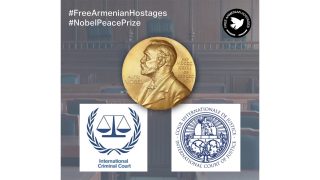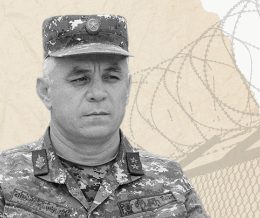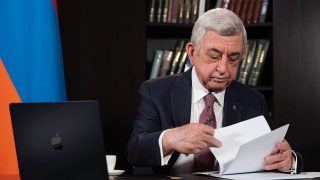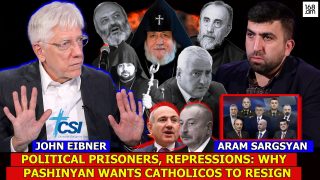
The Imperative of a New War
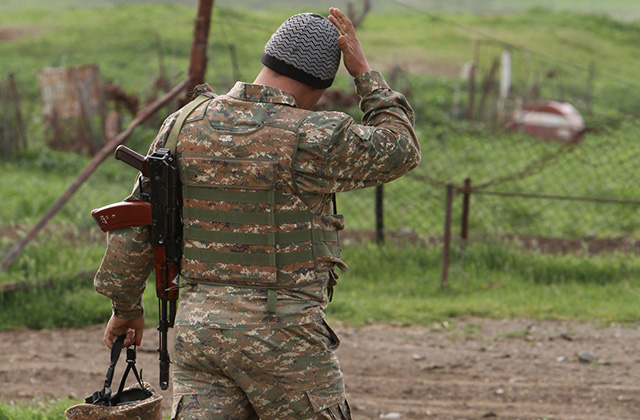
Euphoria, following the April four-day way, step by step is giving way to public disappointment. Social unity, tendency of defending Nagorno-Karabakh, and by Karabakh—Armenia as well, and real heroism of the soldier standing on the border as a result of that impulsion, were lying on the ground of that euphoria.
Like almost all were saying during those days, that euphoria and energy were an exclusive chance for everyone, first and foremost, for the authorities, to suspend former vicious tactics, and really coming to their senses. The authorities could not show by sharp steps, at least by corresponding impetuses that it’s ready to implement changes in the internal life towards elimination of economic monopolies, real reduction of shadow economy on account of big ones, and rising domestic policy relations, political agenda from minor level.
The authorities could finally, feeling social support, to restore dignified relations first and foremost with Russia, and come out of the status of a subordinate, an attaché. Concrete steps have been taken in this direction in early April, corresponding statements were heard, which, seemingly, would be a ground to review foreign policy, for real review and restoration of Armenia’s sovereignty.
However, this lasted just a few days, and organic fear from Russia again found its place not only in souls and minds of Armenia’s authorities, and not only of authorities, but of many opposition representatives as well, to the extent that they started making statements repeating those of Rogozin, mentioning justifying ravings of Russian armaments sales.
The authorities had exclusive chances to maintain the euphoria of early April and moving that emotional state to constructive path, but that chance may be lost forever, easily and immediately.
The society saw and heard, thought and felt, while it was unified around the cherished idea, the authorities, separately and as a whole, consolidated around the instinctive fear of protecting themselves from the public, to maintain their property, accumulated on account of the society. The society saw and heard, thought and felt, while it was defending Karabakh by the price of their lives, and by Karabakh—Armenia as well, the so-called political elite—the authorities and the opposition, altogether and one by one, devaluated the idea of recognition of Karabakh’s independence, initially having a big potential for strengthening Armenia’s positions in negotiations, which became a semi-step with a life of a few days.
The society saw and heard, thought and realized, that by counteracting the external enemy by value of their lives, it’s powerless against its internal enemy. As compared to the external enemy, the type of internal enemy is everywhere, hidden behind patriotic speeches and verbosities of combat readiness of the army by pathetic figures and those accumulated property on account of the army’s armaments.
Throughout a few days the society saw and heard more, than it usually does with years. The society has won on the battlefield by value of its sons, but again victory was grasped from it.
As victory should have been a state with officials, not robbing its army and political figures, not discrediting its own society on account of humiliating themselves before an alien. However, the normal state should have been the defeat of those appearing under the name of that state, those turning the state into guilds. The four-day war, together with a range of revelations, uncovered the most crucial contrast—the incompatibility of the society and those appearing in its name, of the state and those identifying the state with the authorities.
The war revealed inevitability of another war for the Armenian society. When will it occur?—Depends on the society, as war also revealed that the society in Armenia is the only subject, responsible for all other subjects, first and foremost, under the absence of the state.





